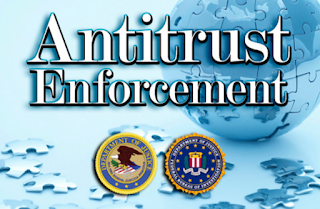Anti trust economics is built upon a series of legal cases where anti trust law was tested in the courts. It's important to be familiar with these landmark legal cases when evaluating whether or not anti trust law is actually for the benefit of the consumer. The cases began in 1890 with the passing of the Sherman Antitrust Act. This post will take a closer look at several of the key anti trust cases in American history.
International Harvester and American Tobacco were critical cases in the early 1900's. The courts ruled that International Harvester would be allowed to operate as a monopoly since it produces cheap farm equipment crucial for agriculture. The regulators actually believed that if they would break up the company, there could be a coup d tat attempt on the government! American Tobacco did not share the same fate as International Harvester. American Tobacco was suspected of price gouging and making phony medical claims about the benefits of tobacco. Not surprisingly, the regulators went after this company with a vengeance. The anti trust law brigade broke up the company in 1911.
More modern cases include AT&T and Microsoft. AT&T was a government supported monopoly for many years. The government believed that AT&T made the phone industry more efficient. I remember back when AT&T was the only company offering phone service. You actually had to rent your handset from the company. That is how much control they had over telephonic communication in the
AT&T was considered a natural monopoly for many years.
They owned everything from the phone lines to the very handset in your home.
I distinctly remember the AT&T logo embossed on every phone in my parent's home. Under the Reagan administration of the 1980's this all changed.
Although AT&T was not accused of price fixing directly, just the potential for price fixing was enough to break up the AT&T monopoly. It seems to me that it was more due to technological advances than legal action that AT&T lost their monopolistic powers on the American consumer.
The break up gave birth to dozens of so called baby bells that hammered consumers with offers of lower prices and clear voice service. I actually switched back to AT&T recently, after years with another carrier to get Apple's newest iPhone.
AT&T actually had a small time monopoly as the only Apple approved carrier for this revolutionary device. However, this changed in early 2011 when Verizon starts providing service for iPhones. The Microsoft case was another story.
Although it was ruled a monopoly by the courts, it was never actually broken up. It is still being challenged almost daily by its competitors with anti trust law claims.





No comments:
Post a Comment